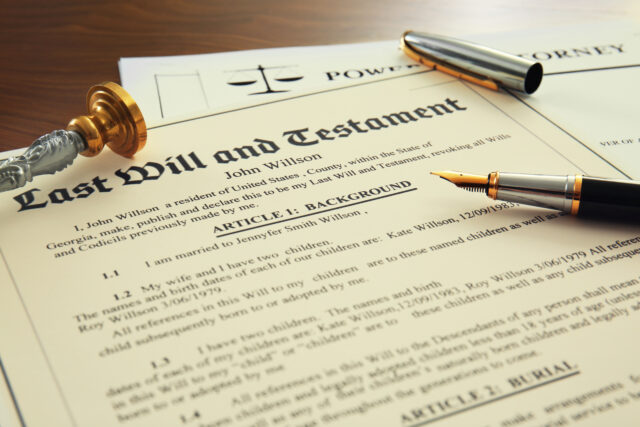Can a Will Be Contested Based on Undue Influence in Massachusetts?
Middlesex County Guardianship Lawyer

When life changes unexpectedly, it can become necessary to assume responsibility for another person’s care. In Massachusetts, this process is known as guardianship. Whether you are seeking to become the guardian of a minor child or an incapacitated adult, the legal procedures can be complex and emotionally charged. At Mark Liam Gannon, Attorney at Law, we are here to guide you through every step of the process. Contact a skilled Middlesex County guardianship lawyer from our firm today.
Guardianship in Massachusetts
Guardianship is a legal relationship established by the court in which one person, the guardian, is given the authority to make decisions on behalf of another person, the ward. This arrangement is often required when the ward is unable to make safe or sound decisions due to age or incapacity.
There are two primary types of guardianships in Massachusetts: guardianship of a minor and guardianship of an incapacitated adult. Each type comes with its own legal standards, processes, and implications.
Guardianship of a Minor
In Massachusetts, a guardian may be appointed for a child when the parents are unavailable, unwilling, or unable to care for the child. This often occurs in situations involving serious illness, substance abuse, incarceration, or death of a parent. Sometimes, a temporary guardianship may be appropriate, especially if the parent expects to be able to resume care at a later time.
A guardian of a minor assumes responsibility for the child’s care, custody, and upbringing. This includes making decisions about education, healthcare, housing, and daily welfare. However, guardianship does not terminate the parental rights of the biological parents. Unless the court orders otherwise, parents may still have visitation and may petition the court for termination of the guardianship in the future.
Guardianship of an Adult
Guardianship for an adult becomes necessary when an individual, often elderly or disabled, is no longer capable of making decisions due to cognitive impairment, illness, or injury. This type of guardianship is typically referred to as guardianship of an incapacitated person. Common causes include dementia, traumatic brain injury, or developmental disabilities.
Before appointing a guardian for an adult, the court must determine, based on clear evidence, that the person cannot make informed decisions regarding their personal well-being. The court will also look for less restrictive alternatives, such as a power of attorney or health care proxy, before appointing a guardian.
Guardianship does not give authority over the ward’s finances unless the guardian is also appointed as a conservator. In many cases, separate appointments for guardianship (personal decisions) and conservatorship (financial decisions) are made, although one person can serve both roles.
The Legal Process for Guardianship in Middlesex County
The guardianship process is court-driven and often includes multiple legal requirements, forms, and hearings. While it is possible to file on your own, many petitioners find it beneficial to work with a guardianship lawyer who can ensure proper documentation and represent them in court. A brief overview of the guardianship process in Massachusetts is as follows:
- Filing a Petition: The first step is filing a Petition for Appointment of Guardian with the Probate and Family Court. In Middlesex County, this is done through the Middlesex Probate and Family Court. You will need to provide detailed information about yourself, the proposed ward, and the reasons guardianship is necessary. If you are filing for guardianship of a minor, you may need to include written consents from the child’s parents or documentation explaining why such consents cannot be obtained. In adult cases, a Medical Certificate or Clinical Team Report must be filed, depending on the type of incapacity. These forms require an evaluation from a qualified medical professional.
- Court Review and Notice Requirements: After the petition is filed, the court schedules a hearing and requires that notice be given to all “interested persons.” These typically include family members, the proposed ward, and in some cases, the Department of Children and Families (DCF) or Department of Developmental Services (DDS). You will also be required to publish notice in a local newspaper unless the court waives this requirement.
- Investigation and Appointment of a Guardian ad Litem: In some cases, the court may appoint a Guardian ad Litem (GAL) to investigate the circumstances of the proposed guardianship and submit a report with recommendations. The GAL interviews all parties and reports on whether guardianship is necessary and appropriate.
- Hearing and Appointment: At the hearing, the judge will consider the evidence and testimony. If the court determines that guardianship is appropriate and all legal requirements have been met, it will issue an order appointing the guardian. The guardian will receive Letters of Guardianship, which serve as legal proof of their authority to act on the ward’s behalf.
- Ongoing Responsibilities and Reporting: Guardians must act in the best interest of the ward and may be required to file periodic reports with the court. These reports update the court on the ward’s condition and the actions the guardian has taken. Failing to meet these obligations can result in removal or legal consequences.
Contact a Massachusetts Guardianship Lawyer
At Mark Liam Gannon, Attorney at Law, we take a compassionate but strategic approach to every guardianship case. We understand that this is not just a legal issue but a deeply personal one. Whether you are seeking to protect a loved one or stepping in to help a child in need, we’re here to help you do it right.
If you would like to learn more or speak with a guardianship lawyer about your specific situation, contact Mark Liam Gannon, Attorney at Law, today. We proudly serve clients throughout Middlesex County and are ready to assist you with every step of the guardianship process.
© 2026 Mark Liam Gannon, Attorney at Law.
All rights reserved. Attorney advertising.


